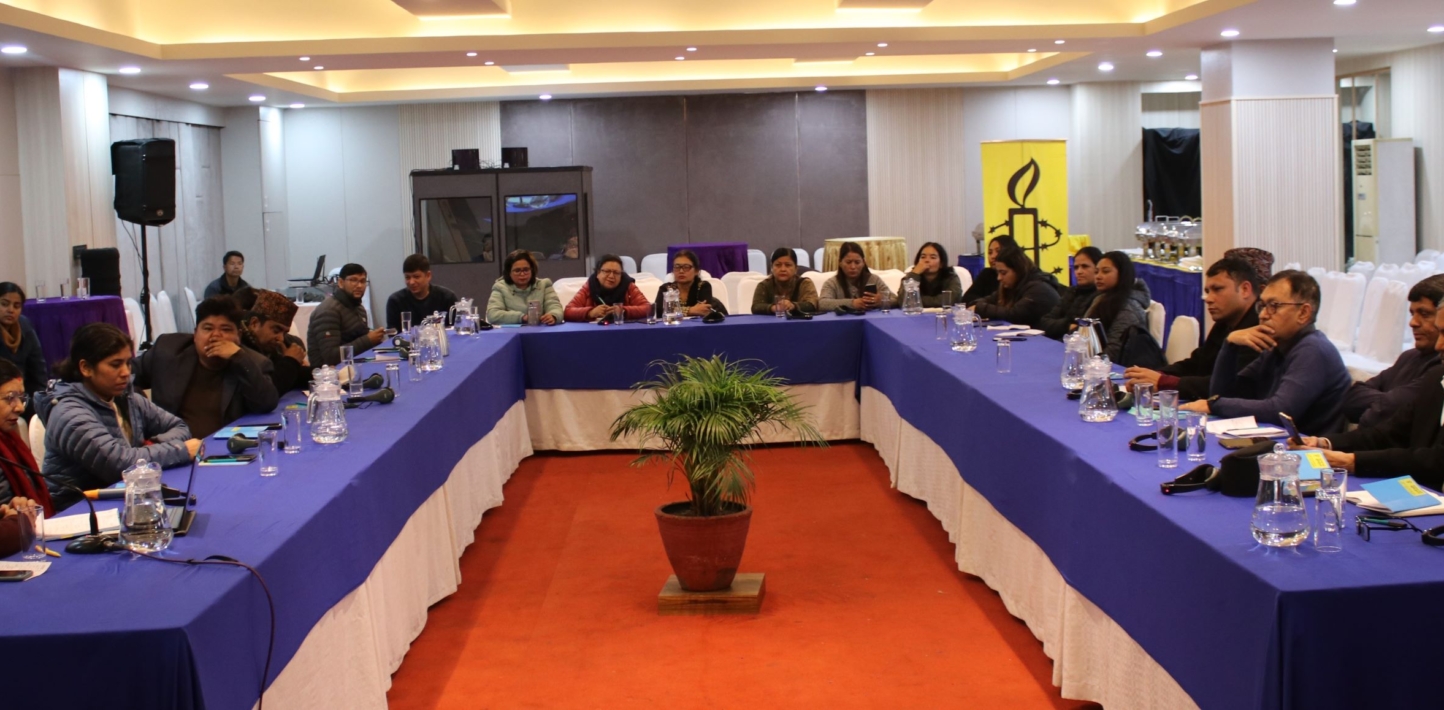On 23 December 2024 Amnesty International Nepal, organised a consultation meeting with victims and civil society actors in Kathmandu to brainstorm on the strategy and way forward towards securing truth, justice and reparations to the victims of enforced disappearances in Nepal. The meeting aimed to create a space for a meaningful discussion amongst the victims and human rights activists towards pressurizing authorities to show accountability.
In collaboration with over 20 partner organisations across South Asia, Amnesty International has launched the first phase of an interactive digital space titled Footprints – Virtual Museum on Enforced Disappearances in South Asia. This innovative platform sheds light on the harrowing stories of individuals subjected to enforced disappearances in the region. Through this digital museum, Amnesty and its partners aim to raise awareness about the profound scars left by this grave violation of human rights and the ongoing struggles faced by victims’ families in their pursuit of truth, justice, and accountability.
The Footprints Virtual Museum documents the troubled pasts and volatile presents of many South Asian nations, where enforced disappearances continue to devastate lives. Despite promises from state authorities in some countries, these crimes persist, leaving countless families without answers or justice. This interactive space not only showcases the stories of those affected but also serves as a powerful tool to challenge impunity, demand justice, and mobilise collective action against governments that have failed to deliver truth and reparations.
The consultation in Nepal was one of many regional consultations Amnesty International will be holding to build a regional strategy to address this grave issue. The meeting in Kathmandu brought together victims’ families, local activists, and civil society organisations towards discussing common strategy towards resolving the enduring issue of enforced disappearances in Nepal. Participants shared their lived experiences and provided recommendations, underscoring the urgent need for truth, justice and reparations. The dialogue fostered deeper engagement and strengthened collective efforts to demand justice in Nepal and across South Asia.
Yasasmin Kaviratne, South Asia Regional Campaigner at Amnesty, delivered the opening remarks virtually. She emphasised the objectives of the consultation, which included introducing the Virtual Museum on Enforced Disappearances in South Asia, sharing with participants of the meeting how this platform seeks to document the stories of victims and their families, fostering collective memory and advocating for accountability.
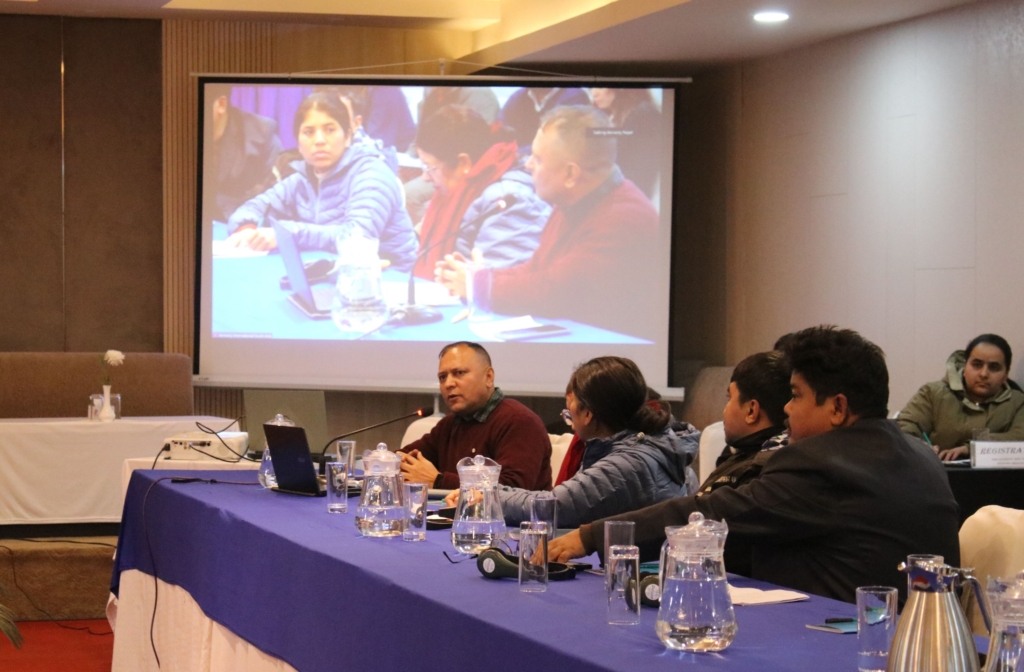
Nirajan Thapaliya, Director of Amnesty International Nepal, provided an overview of Amnesty’s historical and current efforts in addressing enforced disappearances and transitional justice in Nepal. He highlighted significant gaps in the justice system and stressed the importance of shared strategies to hold the government accountable. Thapaliya called for a regional approach, leveraging Nepal’s experiences to inform broader efforts across South Asia.
Discussions delved into the responsibilities of the Nepali government and civil society organisations (CSOs) in addressing enforced disappearances. Participants identified several critical challenges, such as the inefficiency and lack of political will in the domestic justice system; the politicisation of recommendation committees, undermining the work of transitional justice bodies; the dysfunctionality of the Truth and Reconciliation Commission (TRC) and the Commission of Investigation on Enforced Disappeared Persons (CIEDP), which have been largely inactive for two years.
A significant portion of the meeting was dedicated to hearing victims’ families, who shared deeply personal and often harrowing experiences. Ekraj Bhandari, a senior advocate and member of the Constituent Assembly whose son Bipin Bhandari was forcefully disappeared 22 years ago, emphasised victims’ simple demands: public acknowledgement by the State of the disappeared relatives, disclosure of their whereabouts, livelihood support, reparations, and memorials. He urged the government to depoliticise the transitional justice process and take full responsibility of the families in distress.
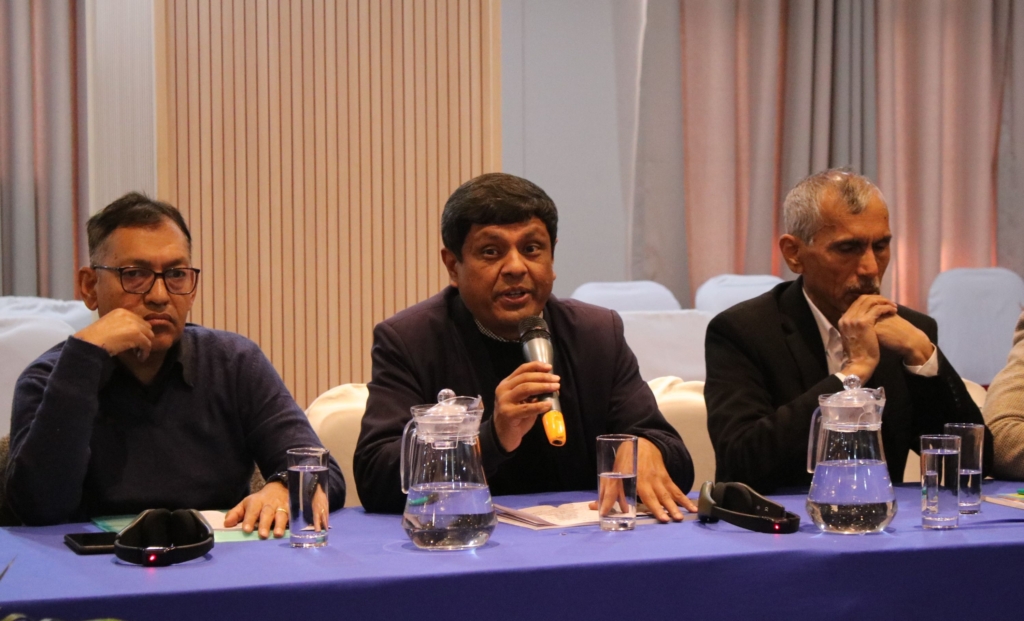
Ram Bhandari, whose father was disappeared, highlighted the disproportionate impact of the protracted delay in offering truth and justice on the marginalised communities, particularly in rural areas like the Tharu community in Kailali, Bardiya, Banke, and Dang districts. He criticised the sensationalised portrayal of the issue, noting that victims’ daily struggles remain overlooked.
Nagma Mali, whose father was disappeared during the conflict, shared her family’s intergenerational struggle for answers. She expressed frustration at the lack of tangible progress. Similarly, Rekha Bastola, who has been waiting for over two decades for the truth about her husband’s enforced disappearance, voiced her despair over justice remaining out of reach.
Bimala Dhakal recounted her struggles raising her son, who never met his father, Rajendra Dhakal, who was disappeared in 1998. She demanded truth and evidence to provide closure.
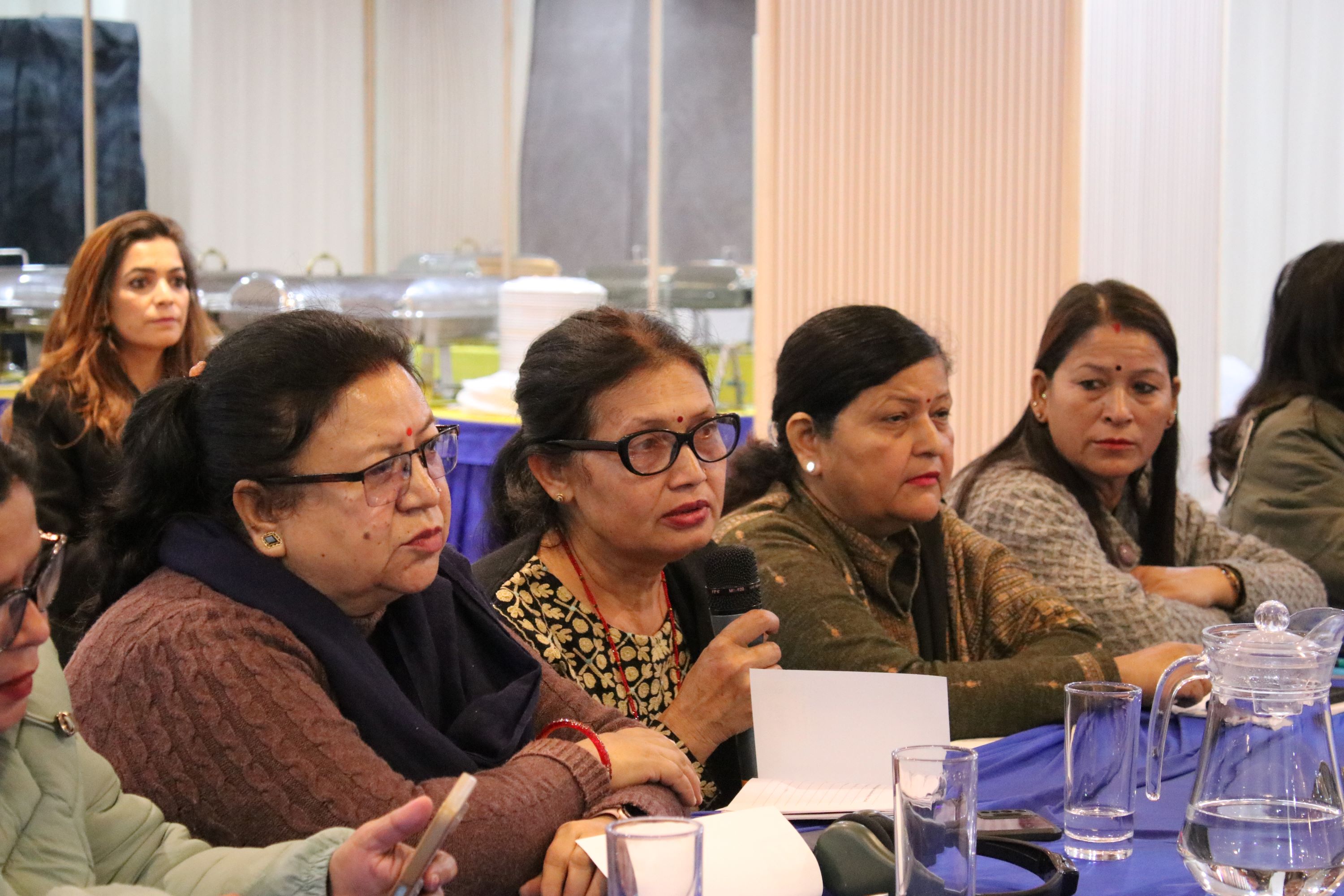
Single mothers like Sabita Basnet and Ruby Shrestha described the lack of state support for their children and the societal stigma they face. Renuka Chaulagai, Constituent Assembly member and mayor of Chauri Deurali Rural Municipality, whose husband remains disappeared, detailed her family’s multiple losses and the inadequate mental health and financial support they received. She also shared how she, as the head of a local government unit, has prioritised the psycho-social support to victims in her jurisdiction, and has delivered measures of support both medical, livelihood and psychosocial care.
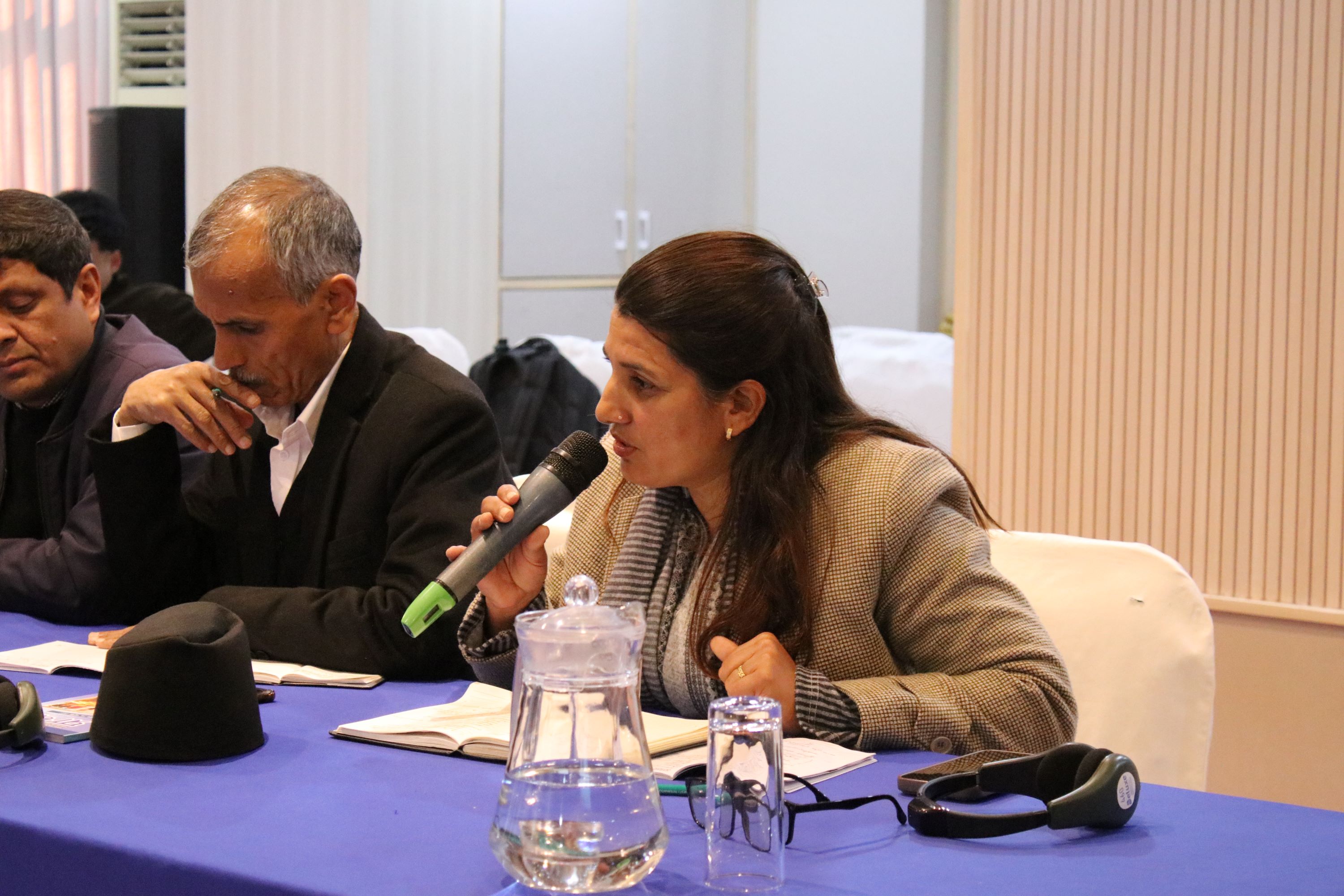
Gopal Shah, Chairperson of the Conflict Victims’ National Alliance, emphasised the need for memorialisation and depoliticisation of transitional justice. Sandesh Shrestha from the International Committee of the Red Cross (ICRC) reiterated the importance of the right to truth for victims and their families.
Suman Adhikari, founding Chair of the Conflict Victim’s Common Platform, expressed his rage over the use of victims by political leaders to serve their political interests and urged all victims to come together to exert pressure no matter whether they were victimized by the State or the then insurgent group during the conflict. He particularly expressed his frustration over the failure of the recommendation committee to recommend names to head the two TJ commissions, and urged the government to immediately start the process afresh.
The meeting concluded with key recommendations:
- Victims’ Inclusion: Ensure victims’ voices are integral to decision-making processes.
- Mental Health and Social Support: Provide comprehensive mental health services and social reparations to victims and their families.
- Truth and Accountability: Expedite and depoliticise the TRC’s work to deliver meaningful outcomes.
- Memorialisation: Establish public memorials to honour the disappeared and preserve their stories.
- Regional Cooperation: Use Nepal’s experiences to inform a South Asia-wide strategy for addressing enforced disappearances.
- Awareness and Advocacy: Coordinate media and civil society efforts to amplify victims’ voices and advocate for justice.


